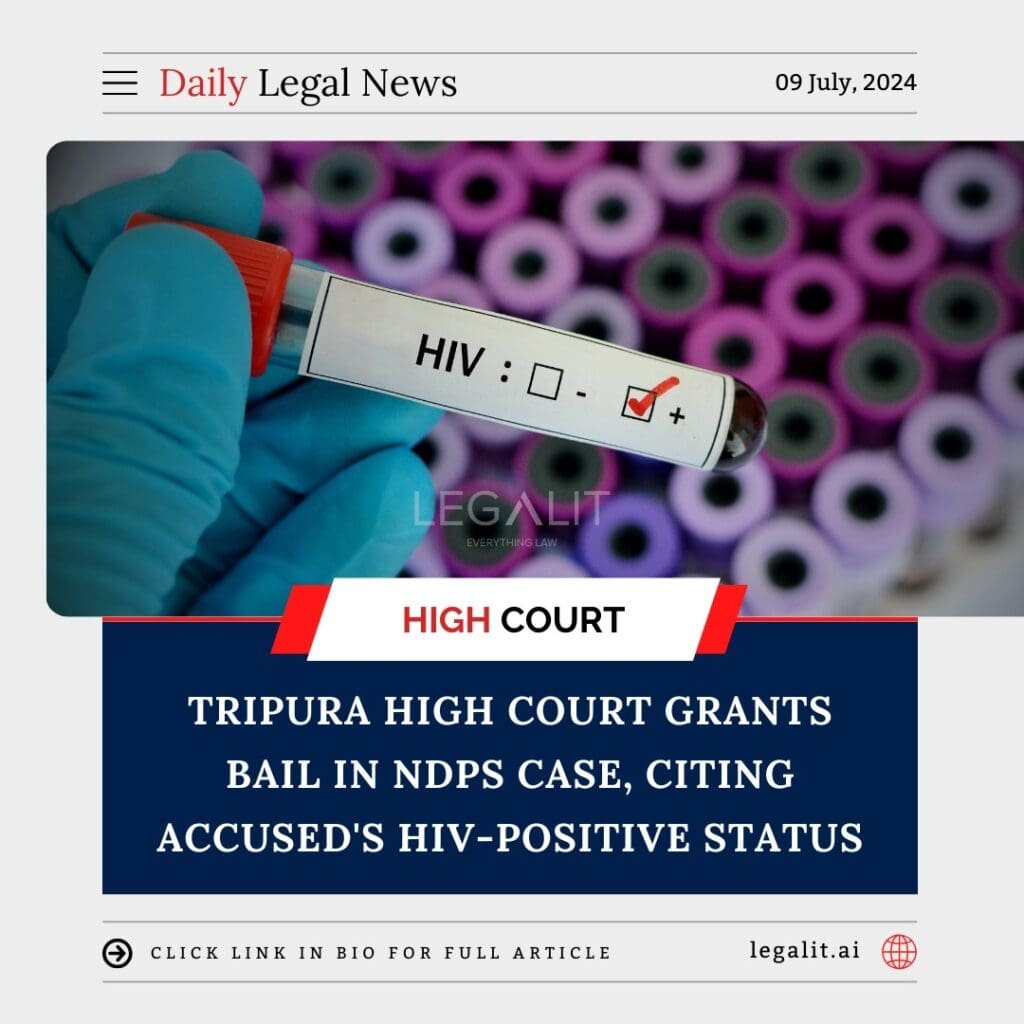
In a notable ruling, the Tripura High Court has granted bail to an accused in a Narcotic Drugs and Psychotropic Substances (NDPS) case, taking into account the individual’s HIV-positive status. This decision highlights the judiciary’s consideration of health conditions in bail matters, reflecting a humane approach to justice.
Background of the Case
The accused was charged under the NDPS Act, one of India’s stringent laws aimed at combating drug trafficking and abuse. The NDPS Act imposes severe penalties and makes bail difficult to obtain, often requiring the court to be satisfied that the accused is not guilty of the offense and is not likely to commit any crime while on bail.
Court’s Rationale for Granting Bail
The Tripura High Court considered several factors in its decision to grant bail:
- Health Condition: The primary reason cited was the accused’s HIV-positive status. The court acknowledged that adequate medical care for such a condition might not be available within the confines of the prison system, thereby jeopardizing the health and well-being of the accused.
- Human Rights and Dignity: The court underscored the importance of upholding human dignity and the rights of individuals, even those accused of serious crimes. It highlighted that denying bail solely on the basis of the severity of the charges, without considering the health implications, would be inhumane.
- Legal Precedents: The decision referenced various legal precedents where courts have granted bail on humanitarian grounds, particularly in cases involving severe health issues. These precedents underscore the judiciary’s commitment to balancing legal strictures with compassionate considerations.
Implications of the Ruling
This ruling has several important implications:
- Judicial Precedent: The decision sets a precedent for future cases where health conditions may be considered a valid ground for granting bail, even under stringent laws like the NDPS Act.
- Prison Health Care: The case brings attention to the quality and availability of medical care within the prison system, potentially prompting reforms to ensure that incarcerated individuals receive necessary medical treatment.
- Human Rights Focus: The ruling reinforces the importance of considering human rights and dignity within the judicial process, ensuring that justice is administered with compassion.
Reactions to the Decision
The High Court’s decision has elicited mixed reactions:
- Support from Human Rights Groups: Various human rights organizations and activists have praised the ruling, viewing it as a progressive step towards humane treatment of individuals within the justice system.
- Concerns from Law Enforcement: Some law enforcement officials have expressed concerns that such decisions might be perceived as leniency towards serious offenders, potentially undermining the deterrent effect of stringent laws like the NDPS Act.
Conclusion
The Tripura High Court’s decision to grant bail to an HIV-positive accused in an NDPS case underscores the judiciary’s role in balancing legal rigor with humane considerations. By prioritizing the health and dignity of the accused, the court has set an important precedent that highlights the need for compassion in the administration of justice. This ruling not only impacts the immediate case but also contributes to the broader discourse on prisoners’ rights and the humane treatment of individuals within the legal system.